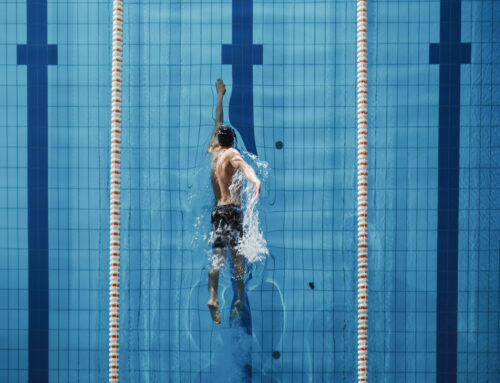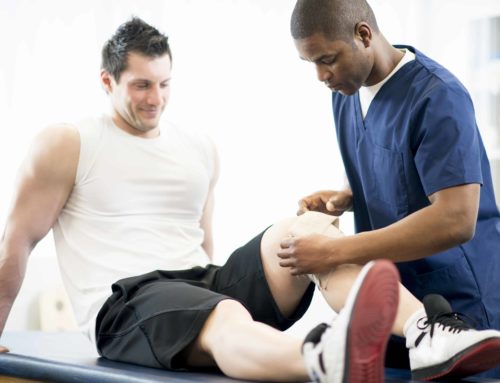My name is Andrea. I’ve been an elite, competitive runner for almost 20 years. I was a Division I scholarship athlete who became an All American and a national record holder in college.
I also developed an eating disorder.
I spent years working with professionals to restore my mental and physical health. It was that recovery work that allowed me to conquer obstacles both on the track and in my life. I learned invaluable lessons that helped me achieve a more balanced lifestyle. It’s these lessons that I want to share with you today.
First, to better understand the challenges I faced (which are undoubtedly familiar to thousands of other athletes), take a look at this article from Ryan Hall, a recently retired American elite long distance runner.
Ryan described his career in sport and the dangerous physical limitations he placed on himself to maintain such a high level of fitness for competition. This was something that hit home for me – I spent several years trying to regain enough weight to even be allowed to compete at the elite level of competition I had qualified for. Because of my eating disorder, I was so underweight that I was medically ineligible to compete with my team. I often felt a similar level of chronic fatigue that Ryan describes in his article. Ryan explains how all of his time and energy went into maintaining a physique lean enough to compete at a high level yet had no energy or stamina to enjoy other aspects of his life. Like Ryan, all I wanted to do was sleep after each training session. I could barely focus in class and had trouble managing my academic demands. Simply put: I lacked the physical, mental and nutritional balance my body required as an athlete.
I have been recovered from my eating disorder for seven years. I still train and compete. I have focused training days, I take rest days, and I find joy in being physically active pretty much every day. I also work a full time job and have made it a priority to appreciate other aspects of my life including time with family and friends (that I used to sacrifice to devote all of my time to being a lean mean running machine), foods that I used to consider off-limits (because I believed they’d hinder my training), nights out at the movies (I’d never allow in fear of not getting enough sleep to be my best at the next day’s training session), and so on and so forth.
I learned how to find balance in my life. It took lots of dedication and self-compassion, especially when addressing something as serious as an eating disorder. Today, I’m happy to share some life lessons with anyone who may be struggling (or knows someone else who is struggling) with disordered eating:
1) I stopped comparing myself to EVERYONE ELSE. There are things that make me different from others for a reason. If we were all the same, the world would not be as interesting. I have my own strengths and weaknesses; you have yours. I’ve learned to accept myself and not focus on how I stack up against other people’s strengths and weaknesses. As Dr. Seuss says, ‘Today you are you, that is truer than true. There is no one alive who is you-er than you.’
2) I let go of the idea that I have to be perfect. Athletes are some of the highest level perfectionists you will ever meet. I was no different. News flash: there is NO such thing as perfect! Once you accept that, you can embrace what makes you awesome!
3) I decided not to be afraid of change. I got stronger once I learned to change the habits that were holding me back. In my case, I was not eating enough to fuel the significant amount of training I was doing. With a lot of help (my next tip), I was able to change how I viewed food – as fuel that my body needed and deserved, instead of something I needed to control in order to be “perfect.” When my mindset changed, I became a much stronger athlete. ‘Just when the caterpillar thought the world was over, it became a butterfly.’
4) I asked for help, and I accepted it when it was offered to me. Even if you don’t think you need it, keep an open mind. Know that there are people out there who care very much about you, want you to be well and want you to succeed. I constantly had people approaching me about my eating disorder (which I denied having at the time) and while it was hard to hear, I accepted help when it was offered. I had an amazing support system of family, friends, coaches, fellow athletes, therapists, nutritionists, and physicians who wanted to see me achieve success in my sport without hurting my body. Even today if I feel as though I am struggling, I reach out to one (or more) of them to help remind me of how far I’ve come and just how strong I am.
I know that there are periods of time when I may struggle, but I also know that now I have the skills to overcome them just as I have before. I’m sure Ryan Hall has reminiscent thoughts of his elite level competition days and wonders if he should return to old habits, just as I have thoughts of my past experiences and wonder if I’m doing all of the right things now in my life. This is when I remind myself of the lessons I’ve learned, the people in my life who I can talk to, the reality that I am unique but incredibly strong thanks to everything I have overcome, and the confidence that I will continue to make changes to sustain balance in my life.
Are you an athlete struggling to find balance? You might want to check out this eating disorder treatment program, specifically built for competitive athletes, offering many of the same resources and the kind of professional support that helped get me to where I am today.
Andrea Walkonen is a special contributor and spokesperson for Walden Behavioral Care. She is a former three-time All American in Cross Country and Indoor and Outdoor Track. She qualified for and participated in the 2016 U.S. Olympic Trials, Women’s Marathon.






